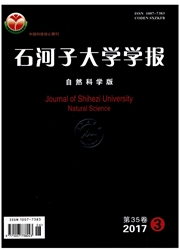

 中文摘要:
中文摘要:
采用室内模拟试验的方法研究了在健康土壤(CK)中单独加入黄萎病菌(V)、混合加入黄萎病菌与拮抗细菌S37(VS37)或S44(VS44)后对棉花生物量和土壤酶活性的影响。研究结果表明:证实了棉花黄萎病菌显著抑制了棉花的生长发育,而拮抗菌处理能够削弱这种抑制作用,使加入棉花黄萎病菌处理的棉花与正常生长的棉花间无显著差异。V、VS37和VS44三个处理对土壤中过氧化氢酶、碱性磷酸酶、蔗糖酶、蛋白酶活性有明显的促进作用。棉花黄萎病菌显著抑制了土壤多酚氧化酶活性,但拮抗菌有显著的促进作用。本试验研究了苗期至花铃期土壤酶活性的动态变化,发现拮抗菌处理前期对土壤酶活性的促进作用高于后期。磷酸酶活性和蛋白酶活性随着生长发育总体呈先上升然后下降的趋势。
 英文摘要:
英文摘要:
The influences of different antagonism bacteria on the soil enzyme activities and cotton biomass were evaluated with a pot experiment under greenhouse conditions.Four treatments were carried out.They were health soil(CK),CK added with Verticillium dahliae Kleb(V),V added with antagonism bacteria S37(VS37) and V added with antagonism bacteria S44(VS44).The results showed that cotton biomass measured as plant fresh and dry weight was significantly inhibited with Verticillium dahliae Kleb,but significantly promoted with antagonism bacteria,so that cotton could grow normally with the treatments of VS37and VS44.The three treatments of V,VS37,VS44 could improve soil enzyme activities of catalase,alkaline phosphatase,sucrase,protease and urease.The soil polyphenol oxidase were significantly inhibited with Verticillium dahliae Kleb,but significantly promoted with antagonism bacteria.The changes of soil enzyme activities were studied from cotton seeding to bolling.The activities were higher in seeding than in bolling with antagonism bacteria.The activities of alkaline phosphatase and protease increased in seeding but decreased in bolling.
 同期刊论文项目
同期刊论文项目
 同项目期刊论文
同项目期刊论文
 期刊信息
期刊信息
